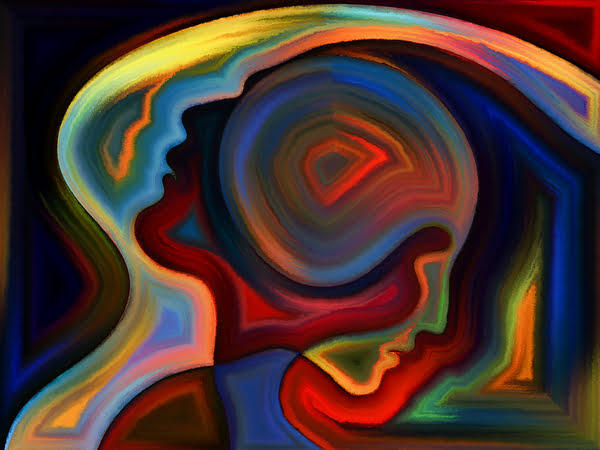In healthy romantic relationships, there’s a balance of closeness and distance. Each partner retains their own identity while also identifying with the relationship to some degree.
This interdependence helps partners meet some of their needs themselves, and some are met by their partners.

When there’s too much closeness in the relationship, the dynamic becomes unhealthy. The partners get enmeshed with each other.
Enmeshment typically occurs in families but can also happen in romantic relationships. When one or both partners come from an enmeshed family background, enmeshment will likely happen in the romantic relationship as well.
It’s because a person from an enmeshed family believes that’s how relationships are supposed to be. So they re-create this dynamic in their relationship because it feels safe.
Even if their partner doesn’t come from an enmeshed family, they can get sucked into the dynamic and eventually become enmeshed with their partner.
Enmeshment vs. intimacy
Enmeshment is not the same as intimacy. Intimacy means being close but still retaining your self-identity in the relationship.
During the initial stages of a romantic relationship, partners spend a lot of time getting to know each other. Enmeshment is likely to occur in this highly intimate honeymoon stage, but ultimately, both partners should be able to integrate their identities into the relationship.
Signs of enmeshment in romantic relationships
Note that your relationship may have some of these signs and yet be healthy. However, if you see many of these signs regularly, there may be cause for concern.
1. No boundaries
Those in enmeshed romantic relationships become carbon copies of each other. Both partners seem to have the same thoughts, opinions, feelings, behaviors, and personalities. You can’t tell where one person ends and another begins. They’re a unit.
They have no identity of their own and adopt the identity of the relationship. A person in an enmeshed romantic relationship over-identifies with their partner. They might say something like:
“I am X’s girlfriend.”
“I am Y’s husband.”
They have no identity outside the relationship.
2. Fused emotions
A person in an enmeshed relationship can’t distinguish between their own and their partner’s emotions. This is not the same as showing empathy or providing emotional support, where you can separate your feelings from those of others.
Partners in enmeshed romantic relationships feel responsible for each other’s emotions. When one partner feels down, the other feels down, too. This isn’t healthy emotional attunement where you’re in tune with your partner’s emotions but know you’re not responsible for them.
As a result of this emotional fusion, both partners are overly affected by each other’s emotional rollercoasters. Each feels the need to rescue the other from their difficult emotions and problems.
In a healthy relationship, you validate your partner’s emotions and show empathy, but you only take up problems that you can tackle and offer support without over-involvement.
You’re able to say:
“I can help you with this, but not with that.”
3. Pressure
When you’re in an enmeshed relationship, you feel pressure to act, think, and behave in ways that reinforce the unified relationship identity. There are a lot of “we” and “should” statements in the relationship:
“This is how we should be.”
“We should do this.”
Even if these behaviors conflict with your self-identity and values, you still do them to avoid conflict or upsetting your partner. This differs from compromise, where partners willingly accommodate each other without any pressure.
4. No independence
Retaining your independence is a crucial characteristic of healthy relationships.
In enmeshed relationships, partners can’t seem to do anything independently. They must do everything together, and all decisions and activities must be shared. In healthy relationships, you do some things together and some things independently.
5. No alone time
A crucial part of retaining your identity in a relationship is spending time with yourself and connecting with your needs, interests, and hobbies.
If you’re getting no “me time” in the relationship, you’re not getting a chance to nurture your own identity.
6. Anxiety
Since enmeshed partners are overly reliant on each other for their identity and self-worth, they feel anxiety when they’re separated. This is not the sadness you feel when you miss your partner. It’s a sense of feeling lost and not knowing who you are without your partner.
It’s constantly worrying that the relationship will end. This anxiety motivates enmeshed partners to stay in constant contact when apart.
Dealing with enmeshment in romantic relationships
The first step is identifying what’s going on. It would help to trace your enmeshed patterns to your family of origin. If you, your partner, or both come from enmeshed families, you must realize it’s not a healthy dynamic.
That’s hard to do because enmeshed family members believe enmeshment is normal- how relationships are supposed to be.
Next, you need to understand how these enmeshment patterns affect your romantic relationship specifically.
Are you both connecting with each other and retaining your identities in the relationship?
If not, how can you start doing that?
Note that if you try to break the enmeshment pattern in your relationship, you’ll likely face some resistance. But it’s worth it for the sake of your identity.
